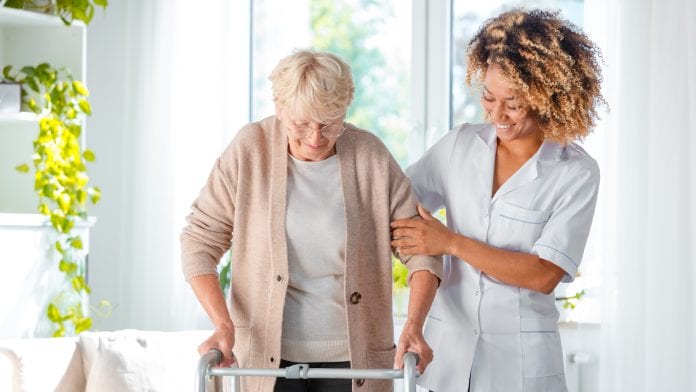
An AI-assisted remote monitoring and telehealth platform which predicts and prevents falls in the elderly could help reduce the burden on the NHS.
According to the NHS, falls are the most common cause of injury-related deaths in people over the age of 75, and falls in the over 65s cost the NHS £4.6m a day. To help with the response to the problem, some fire services have entered into Fall Response contracts with councils, responding to elderly falls instead of ambulances. CUSH Health, a clinician-led team, has now developed an AI-assisted remote monitoring and telehealth platform to predict and prevent falls in the elderly in a bid to help care for these populations whilst reducing the burden of cost on the NHS.
CUSH Health was founded by Dr Sam Fosker and Kalon Hewage, who had realised the burden of falls on the NHS and the impact they have on people’s lives.
Harnessing the power of machine learning
Dr Fosker and Hewage both have backgrounds in technology and machine learning, so the pair examined whether they could look at off the shelf wearables, such as smartwatches and phones, in order to monitor people’s gait and give them a better strength and balance routines. The fall prevention technology aims to reduce these falls in the community whilst also being able to give feedback to the patients and family, as well as healthcare professionals.
Dr Fosker said: “We want our platform to be a community monitor as well as increasing mobility and independence. Once there is a fall there is reduced mobility. We wondered if there was something that we could do about this as we both have elderly, independent grandparents living at home. We also realised the scale of the problem within the NHS and the impact of falls and fracture on mobility and the cost on health care.
“We have had two Innovate UK grants – the first was to look at the impact of the technology on a rehab population, which showed over 94% accuracy in our machine learning algorithm for elderly gait monitoring, and the second to look at long term monitoring. This is able to predict changes and therefore falls and help care givers to implement exercise regimes or strength and balance routines for patients in their own home.”
Remote monitoring
The second grant has allowed CUSH Health to develop a community health platform for the older generation. The platform is aimed at the elderly fall population who are in hospital and then discharged into the community, to aid with rehabilitation and monitoring within the hospital, as well as further monitoring at home by the healthcare team without the need for in face visits.
Dr Fosker said: “This also allows for better, more streamlined services of the healthcare system, helping to identify those doing well and remotely increase exercises or targets being set.
“We are now setting up a new project with West Sussex Trust looking at its elderly and hip fracture population. We will also be using the technology to assist with the recovery of COVID-19 patients. COVID-19 has pushed a lot of healthcare services to be able to work from a home setting, changing the way healthcare works. People are adapting to that and it has shown how there is the opportunity to change how the healthcare system works.
“It will take time to get used to, but COVID-19 has increased speed these technologies have been adopted. As long as they are used in a clinically validated and research setting, they should have a lot of patient benefits.
CUSH Health is part of Agetech Accelerator working with different partners across the EU and the UK, talking with healthcare professionals and looking at how the CUSH Health platform can be integrated into both healthcare setting and into the community.
For more information please visit: https://www.cushhealth.com/









